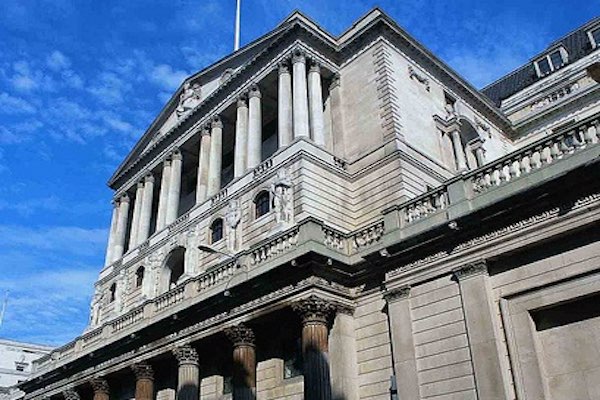
The cut to the base rate was widely expected by analysts and economists
The Band of England’s Monetary Policy Committee (MPC) voted by a majority of 5 - 4 to cut its base rate today from 4.25% to 4% in a widely expected move.
The cut takes the base rate to its lowest level for over two years and is the third cut to the base rate so far this year (February and March).
Twelve-month CPI inflation increased to 3.6% in June, slightly above expectations at the time of both the May Report and the Committee’s June meeting.
In its predictions for the economy, the Bank said CPI inflation is forecast to increase slightly further to peak at 4.0% in September.
Inflation is expected to fall back thereafter towards the 2% target, although the MPC added it, “remains alert to the risk that this temporary increase in inflation could put additional upward pressure on the wage and price-setting process”.
Overall, the MPC Committee judged that the upside risks around medium-term inflationary pressures have moved slightly higher since May.
The cut to the base rate was widely predicted by analysts and economists, who also expected the Monetary Policy Committee to be split over the decision.
Lucy Smith, senior investment manager at wealth manager and stock broker Killik & Co, said savers needed to reassess their financial plans
She said: “The harsh reality is that Britain has one of the worst rates of inflation anywhere in the Western world. While our European allies can enjoy their interest rates at 2% rate, we’ll likely have to live with double that for a little while longer.
“With Downing Street breathing a sigh of relief as the Bank of England looks to kickstart growth, savers should be reassessing their finances. While banks had already been pricing in cuts on savings rates, this may now prompt them to do so more aggressively. This means money from cash savings accounts will likely flow towards other investments such as equities, as investors search for better returns.”
Adam Gillespie, partner at XPS Group, said the base rate change will not have much of an impact on pension savers.
He said: “Today’s cut is likely to have a negligible impact on UK DB schemes, with schemes remaining well-funded and largely insulated from short-term rate changes by hedging strategies. For DC savers, the picture is more nuanced.
"Lower base rates may reduce returns on cash holdings, but long-term pension growth continues to be driven primarily by investment performance rather than short-term rates. Outcomes for those purchasing annuities continue to depend heavily on long-term yields.”
The next base rate decision is due on 18 September.